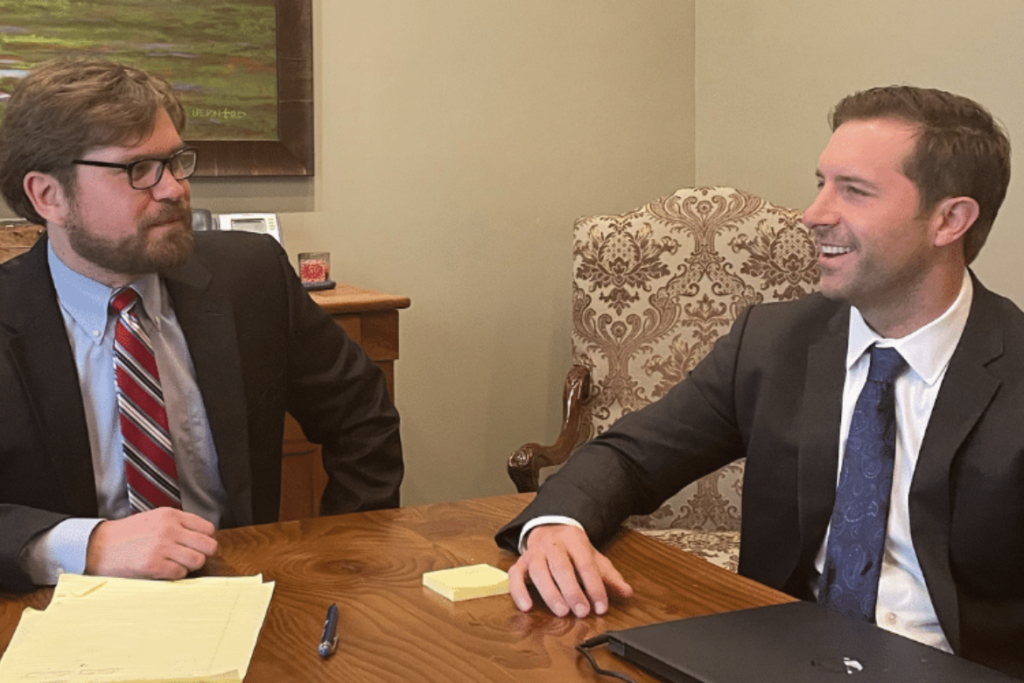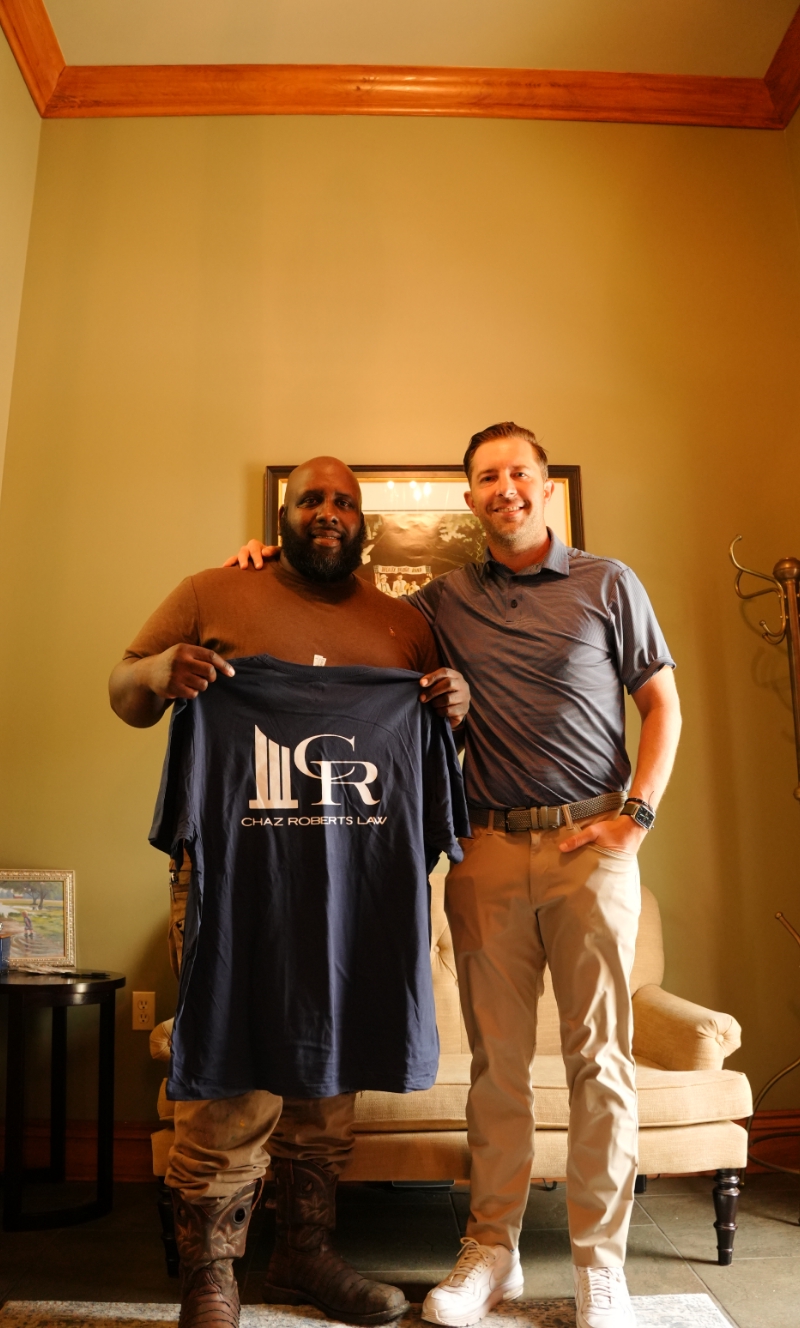When we file a lawsuit on behalf of a personal injury client, the insurance company usually wants to take our client’s “deposition.” These depositions are common events for our firm, as our attorneys have conducted hundreds of them. But, for our personal injury clients, a deposition can seem strange, unfamiliar, or even downright scary.
Rest assured, there is no need to be frightened by a deposition. It is a straightforward activity, and with some basic preparation, you will be ready to tackle your own deposition day. This blog summarizes the deposition process and answers some common questions we receive about depositions in personal injury cases.
WHAT IS A DEPOSITION?
A deposition is nothing more than a question-and-answer session between attorneys and you (the witness). You will be placed under oath, then an attorney will ask you questions and take your sworn testimony. A court reporter is also present to record the questions and answers, which will later be typed in the form of a booklet.
WHEN AND WHERE DOES THE DEPOSITION OCCUR?
Your deposition takes places long before the trial. It will occur in an attorney’s office, usually in a conference room. You will not be at the courthouse, and there will not be a judge or jury present. It is only you, the attorneys, and the court reporter.
WILL I BE UNDER OATH?
YES. Although there is no judge or jury present, the oath is the same. You will be “sworn in” before the deposition, so you must answer all questions truthfully.
WHAT WILL THE ATTORNEYS ASK ME ABOUT?
Attorneys will always ask you about the details of your accident, your injuries, and your medical treatment. For example, if you were involved in a car wreck, you will be asked about the circumstances of that wreck (where you were going, how fast you were driving, what intersection you were passing through, what color the light was, etc.). You will also be asked about all medical treatment with doctors, chiropractors, physical therapists, or other health care providers.
Those are the major subjects covered during depositions, but Louisiana law also allows attorneys to ask about many other topics – even if they seem to have nothing to do with your lawsuit! An attorney generally may ask you about anything during your deposition, as long as the questions are not offensive or harassing.
That means the lawyers may ask you about subjects that seem completely irrelevant to your case. While many such topics will not be admissible at trial – meaning the judge or jury will never hear about them – the opposing attorney will probably ask you about many personal details. These topics could include: marital history, personal and family relationships, educational background, employment history, current and previous residences, arrests or criminal convictions, driving record, vacations, social life, leisure activities, and alcohol and drug use or abuse.
WHAT ARE SOME DEPOSITION “DON’TS”?
Do not lie. THE SINGLE WORST THING YOU CAN DO DURING YOUR DEPOSITION IS LIE. If the other attorney finds out you lied during your deposition, that will be very harmful – or even fatal! – to your case.
For example, if you insist that you’ve never filed a lawsuit before, but then the other attorney finds out about a previous lawsuit, that is very harmful to your credibility. Or, if you deny that you did any activities on vacation, then the other attorney finds pictures of you snorkeling and hang-gliding, that is also very harmful to your case. If the insurance company can prove that you lied under oath, your case may even be dismissed! When answering questions about your past activity, you must assume the other attorney knows everything about your life, and answer all questions truthfully.
Do not lose your temper or argue. The insurance company attorney is watching you at all times to decide whether you are likeable and sympathetic. If you come across as pleasant and truthful, the attorney will take note of that. If the insurance company believes that a judge or jury will like you, they will be much more willing to pay you fair compensation.
On the other hand, if you lose your temper or argue with opposing counsel, they will know that you can lose your cool. Being combative with an attorney could potentially alienate a judge or jury. So, it is important that you remain calm and respectful throughout the deposition.
WHAT ARE THE MOST IMPORTANT TIPS FOR MY DEPOSITION?
Be honest. The first and most important instruction is to be truthful at all times. A major reason the insurance company takes your deposition is to see if you are credible – i.e. do you seem honest, and will a judge or jury believe your testimony?
Don’t guess. Being truthful means you can’t tell lies, but it also means being accurate. Do not guess at an answer. If you do not know an answer, admit you don’t know. That’s fine – if you don’t know, you don’t know. If your memory is weak on a matter but you feel you should know the answer, admit that you do not recall. That is fine.
Don’t volunteer information. The attorneys may not ask you about some aspects of your case or your personal life. If you are not asked about a subject, do not volunteer any information. When you have answered a specific question, stop talking and wait for the next question. Less is more.
Choose the right attorney. If you have the right attorney by your side to prepare you, that will maximize your chances for a successful deposition. Here at Chaz Roberts Law, we’ve helped our clients navigate many depositions. We pride ourselves on client preparation, and we meet individually with every client before a deposition occurs. We will meet with you as long as necessary to answer any and all questions you may have before your deposition.
So, if you have been involved in an accident or are considering a lawsuit of any kind, call or text us today at 337-504-3202, or shoot us a DM on your favorite social media platform for your free, completely confidential consultation.



